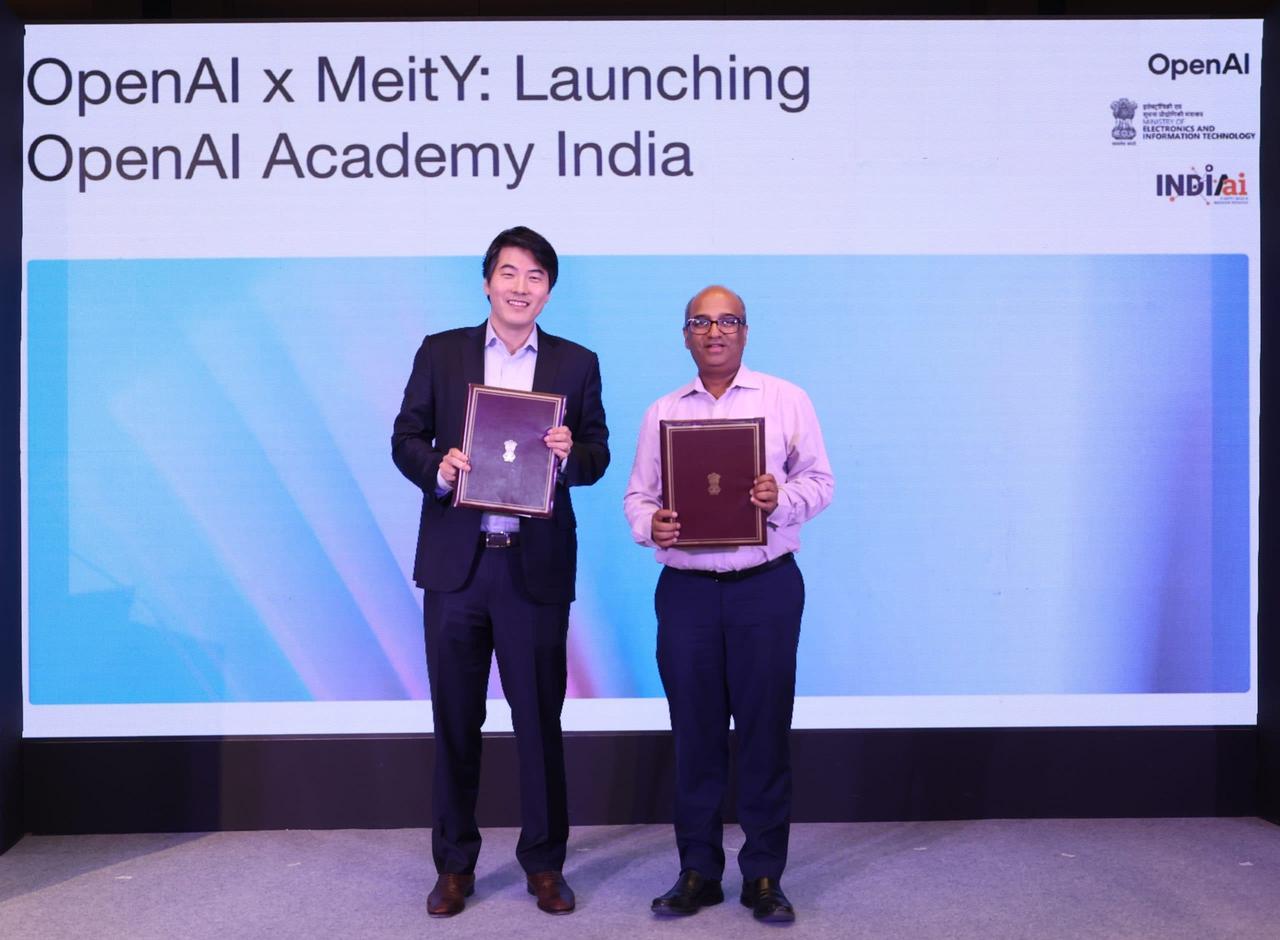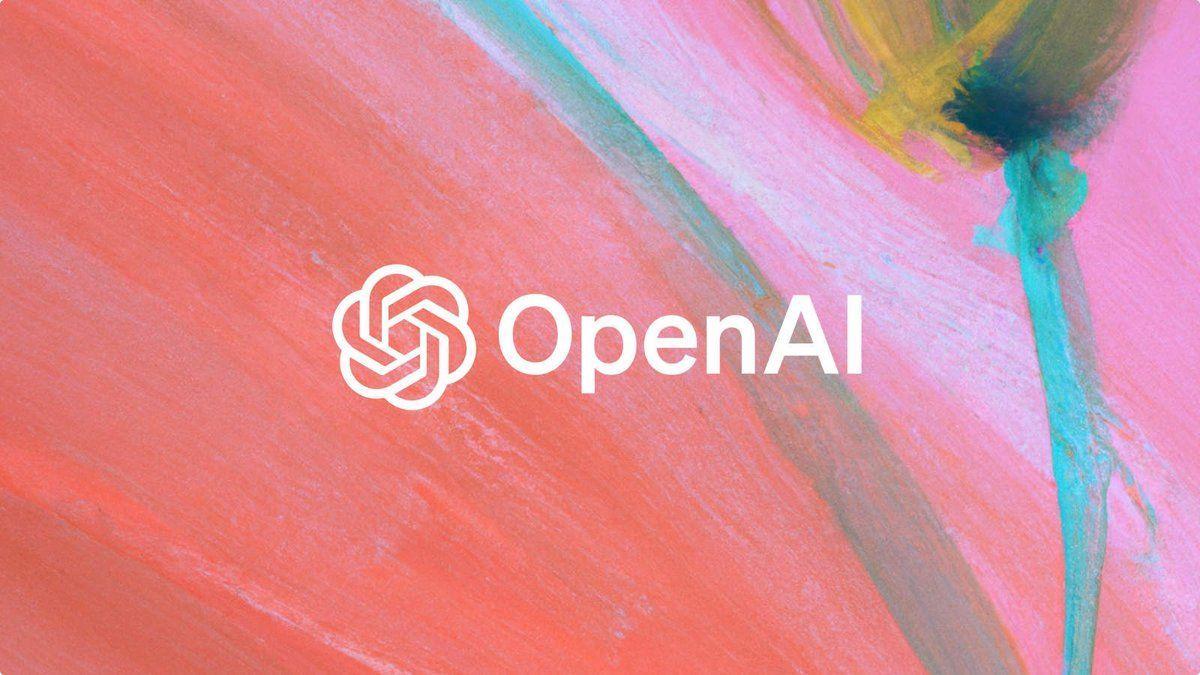OpenAI Launches Academy Initiative with $1 Million in API Credits for Developers in Low and Middle-Income Countries
3 Sources
3 Sources
[1]
OpenAI launches effort to invest $1 million of API credits for developers from middle and low-income countries
OpenAI has launched a new effort called OpenAI Academy that will award developers from low and middle-income countries $1 million in API credits. The blog making the announcement said that the goal of the program was to ensure that the potential of artificial intelligence was distributed across disadvantaged communities globally. "Many countries have fast-growing technology sectors filled with talented developers and innovative organizations, yet access to advanced training and technical resources is still a significant barrier," the announcement states. "Investing in the development of local AI talent can have a transformative impact across a range of industries." Besides, the company has also pledged to host incubators and contests as well in partnership with philanthropists to provide investment in organisations from these communities. The AI firm has also said it has funded the translation of the Massive Multitask Language Understanding (MMLU) benchmark into 14 languages including Arabic, Bengali and Swahili to aid non-English speaking communities. Published - September 25, 2024 10:21 am IST Read Comments
[2]
OpenAI Academy launches with $1M in developer credits for devs in low- and middle-income countries
Join our daily and weekly newsletters for the latest updates and exclusive content on industry-leading AI coverage. Learn More It's not school, but the academy is designed to boost the skills and careers of local developers. I'm talking, of course, about the OpenAI Academy, a new effort announced today from the AI unicorn that will begin by awarding some unspecified number of developers in low- and middle-income countries $1 million in API credits. The goal? To catalyze economic growth and innovation in sectors such as healthcare, agriculture, education, and finance, as well as "ensure that the transformative potential of artificial intelligence is accessible and beneficial to diverse communities worldwide." "Many countries have fast-growing technology sectors filled with talented developers and innovative organizations, yet access to advanced training and technical resources is still a significant barrier," the announcement states. "Investing in the development of local AI talent can have a transformative impact across a range of industries." Cynics and skeptics will undoubtedly say this is some form of neo technological colonialism -- with the U.S.-based OpenAI seeking to spread its influence and increase dependencies on its technology around the globe. Yet for devs who receive the credits, it's hard to imagine them not celebrating being selected and being excited to use OpenAI models to build their own apps that could become thriving new businesses. Of course, OpenAI will stand to benefit from entrenching itself more among the up-and-coming developers building new startups, but also, there's nothing that I see in the announcement that says these devs can't use other AI models simultaneously, nor that they couldn't one day switch out the underlying API pipelines to other rival providers. It seems like a win-win for devs and OpenAI, to me. Which countries will be eligible to participate? OpenAI's announcement doesn't clearly state which countries are included in its list of "low and middle-income countries," but those are categories that the World Bank uses as well, based on gross national income per capita. In fact, the World Bank divides economies into four income groups -- low, lower-middle, upper-middle, and high income. The U.S. and many European nations are high-income, while many countries in Sub-Saharan Africa and South Asia fall into the low and lower-middle-income categories, where GNI per capita remains a barrier to accessing cutting-edge technologies like AI. Countries such as Afghanistan, Bangladesh, and Angola fall into the low and lower-middle-income categories. In fact, 63% of all countries are considered lower or middle-income (LMIC), some 137 different nations. That's a long list and it's not likely that OpenAI will be targeting them all at once, so it will be interesting to see where it focuses first and why. Supporting local talent to drive a global impact Naturally, it's not just API credits OpenAI is dangling as incentive to apply to the program. Indeed, the company pledges to host incubators and contests as well as "experts for developers and mission-driven organizations leveraging AI." The Academy's focus on building a global network of developers will help foster collaboration and knowledge sharing across diverse regions. By connecting participants, OpenAI aims to create a robust community that can collectively drive technological advancements and tackle community-specific challenges. The initiative also plans to host contests and incubators in partnership with philanthropists to provide targeted investment in organizations working on the front lines of their communities. For example, KOBI, a recent recipient of the OpenAI prize at The Tools Competition, uses AI to assist students with dyslexia in learning to read. Another beneficiary, I-Stem, employs AI to improve access to content for blind and low-vision communities in India, helping them find meaningful employment. Expanding access to AI resources In addition to direct support for developers, OpenAI has funded the translation of the Massive Multitask Language Understanding (MMLU) benchmark into 14 languages, including Arabic, Bengali, and Swahili. This initiative aims to make AI education more accessible and relevant to non-English speaking communities, facilitating the development of AI solutions that are culturally and linguistically tailored to local needs. The OpenAI Academy represents a significant expansion of OpenAI's ongoing efforts to empower developers and organizations worldwide. OpenAI also pledges further details on how to access the Academy's resources.
[3]
OpenAI Introduces Academy to Invest in Developers Across the World
The company has launched OpenAI Academy, an initiative to invest and support the developer community and organisations leveraging AI. The company shared details in a blog, stating that this initiative builds on OpenAI's long-standing support for AI developers and organisations working on the front lines. It will start with low- and middle-income countries. The goal is to invest in local AI talent that can fuel economic growth and innovation across sectors. Tailored specifically for local needs, OpenAI wants its AI applications to be contextual to the particular economy and culture. OpenAI is yet to share details about how to access the Academy's resources. On the whole, it would include the following: According to the blog, OpenAI believes that regardless of where you live or the language you speak - learning should not stop. The company noted that over the past year, investments in AI education, resources, and community-building has led to an outsized impact. For example, KOBI, the winner of the OpenAI prize at The Tools Competition, uses AI to help students with dyslexia learn to read. I-Stem, one of the winners of the turn.io Chat for Impact contest uses AI to enhance access to inaccessible content designed to help blind and low-vision communities in India find meaningful employment. OpenAI has provided API credits and technical guidance to support the winning organisation. Earlier this year, OpenAI released ChatGPT Edu, a version of ChatGPT built for universities to responsibly deploy AI for students, faculty, researchers, and campus operations. OpenAI is also offering translations of the Massive Multitask Language Understanding (MMLU) benchmark, a measure of general AI intelligence, into 14 languages: Arabic, Bengali, Chinese, French, German, Hindi, Indonesian, Italian, Japanese, Korean, Portuguese, Spanish, Swahili, and Yoruba.
Share
Share
Copy Link
OpenAI introduces the Academy program, offering $1 million in API credits to support developers from low and middle-income countries. The initiative aims to foster AI innovation and address the global AI skills gap.

OpenAI's Academy Initiative: Bridging the Global AI Divide
OpenAI, the artificial intelligence research laboratory, has launched a groundbreaking initiative called OpenAI Academy. This program aims to invest $1 million worth of API credits to support developers from low and middle-income countries, fostering AI innovation on a global scale
1
.Empowering Developers Worldwide
The Academy program is designed to provide developers with the resources they need to build and scale AI applications using OpenAI's advanced language models. By offering API credits, OpenAI is removing financial barriers that often hinder innovation in regions with limited resources
2
.Eligibility and Application Process
Developers from countries classified as low or middle-income by the World Bank are eligible to apply for the program. The application process involves submitting a project proposal that demonstrates the potential impact of their AI application. OpenAI will evaluate these proposals based on their creativity, feasibility, and potential to benefit their communities
3
.Comprehensive Support and Resources
In addition to API credits, successful applicants will receive access to educational resources, including tutorials and best practices for working with OpenAI's models. This comprehensive approach ensures that developers not only have the tools but also the knowledge to effectively leverage AI technologies
2
.Addressing the Global AI Skills Gap
The OpenAI Academy initiative is a response to the growing global AI skills gap. By investing in developers from underrepresented regions, OpenAI aims to democratize access to AI technologies and foster a more diverse and inclusive AI ecosystem
1
.Related Stories
Potential Impact on Local Innovation
This program has the potential to catalyze local innovation in participating countries. By providing developers with access to cutting-edge AI tools, OpenAI is enabling the creation of solutions tailored to specific regional needs and challenges
3
.OpenAI's Commitment to Responsible AI Development
The Academy initiative aligns with OpenAI's broader mission of ensuring that artificial general intelligence (AGI) benefits all of humanity. By investing in diverse talent pools, OpenAI is working towards a future where AI development is more representative and inclusive
2
.References
Summarized by
Navi
[1]
[2]
Related Stories
OpenAI Expands AI for Impact Accelerator in India: Grants $150,000 to 11 Nonprofits
03 Jun 2025•Technology

OpenAI and IndiaAI Mission Launch OpenAI Academy to Boost AI Education Across India
06 Jun 2025•Technology

OpenAI Launches Free 'OpenAI Academy' to Boost AI Literacy and Skills
26 Mar 2025•Technology

Recent Highlights
1
ByteDance Faces Hollywood Backlash After Seedance 2.0 Creates Unauthorized Celebrity Deepfakes
Technology

2
Microsoft AI chief predicts artificial intelligence will automate most white-collar jobs in 18 months
Business and Economy

3
Google reports state-sponsored hackers exploit Gemini AI across all stages of cyberattacks
Technology





